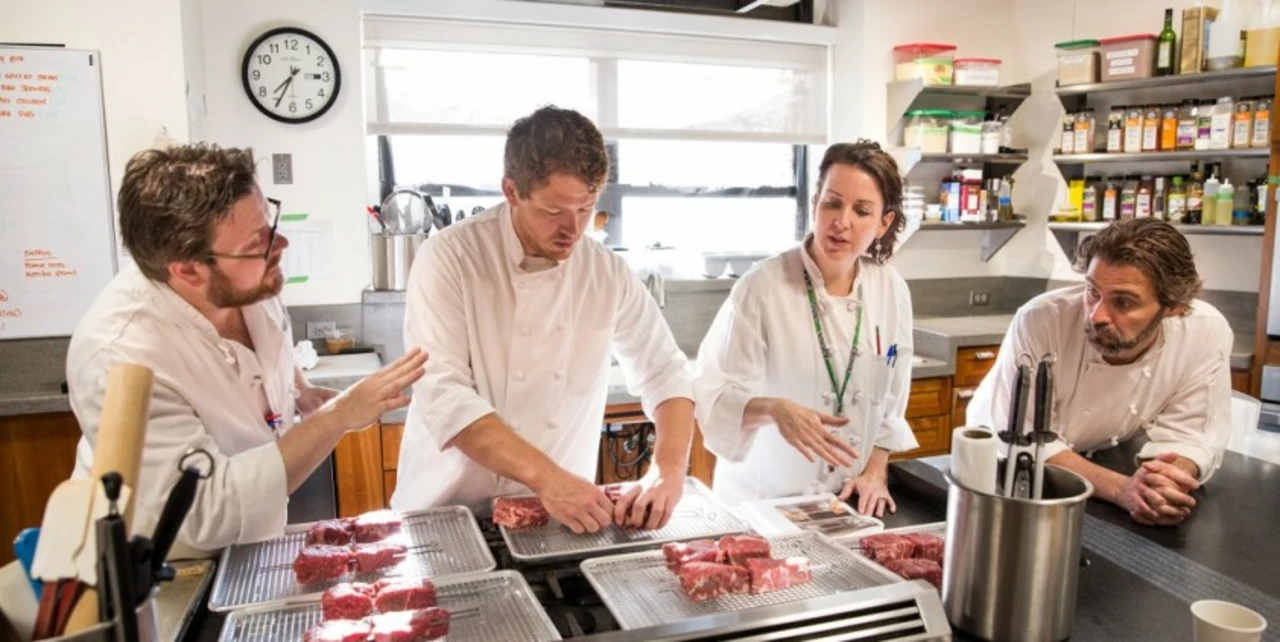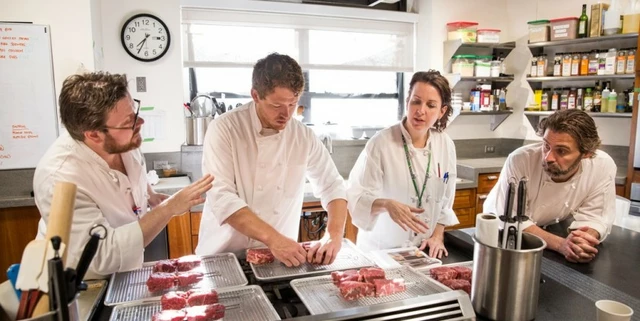The Allure of Cooking Shows
As a passionate foodie and avid watcher of cooking shows, I've noticed a growing trend that might surprise you: cursing. It's becoming more and more acceptable for chefs and hosts to use profanity in their programs, and it doesn't seem to be slowing down. In this article, I'll explore the reasons behind this phenomenon and try to answer the question: why is cursing acceptable in cooking TV shows?
Breaking the Stereotypes
One reason for the increased use of profanity in cooking shows is that it helps break down the stereotype of the prim and proper TV chef. By using curse words, these chefs are showing that they are just as human as the rest of us, and that they aren't afraid to let their emotions show. This can make them more relatable to viewers, and can also make the cooking process seem less intimidating.
Expressing Passion and Emotion
Another reason why cursing has become acceptable in cooking shows is that it can be a way for chefs to express their passion and emotion. Cooking is an art form, and just like any other artist, chefs have their own unique way of expressing themselves. For some, this means using colorful language to convey their enthusiasm for the dishes they are creating.
Adding a Sense of Authenticity
Many chefs and cooking show hosts pride themselves on being authentic and down-to-earth, and cursing can be a way to reinforce this image. By using profanity, they are sending a message that they aren't trying to put on airs or pretend to be something they're not. This can be especially important for shows that focus on home cooking or feature chefs who come from humble backgrounds.
Injecting Humor and Entertainment
Let's face it: cooking shows can sometimes be a bit dry and boring. One way to liven things up is by injecting humor and entertainment into the mix, and cursing can be an effective way to do this. By using curse words, chefs and hosts can add a bit of levity to their shows and keep viewers engaged and entertained.
Attracting a Broader Audience
By using profanity, cooking shows can potentially attract a broader audience. Some viewers might be more inclined to watch a show if they know it's going to be a bit edgier and less conventional than the typical cooking program. This can help to expand the overall reach of the show and bring in new viewers who might not normally be interested in cooking.
The Influence of Celebrity Chefs
There's no denying that celebrity chefs like Gordon Ramsay have had a huge impact on the world of cooking shows. With their larger-than-life personalities and penchant for cursing, these chefs have helped to redefine what it means to be a TV chef. Their success has undoubtedly influenced other cooking show hosts and chefs to follow in their footsteps and embrace a more unfiltered, uncensored approach to their programs.
Pushing the Boundaries of Television
As television continues to evolve, there is a constant push to explore new boundaries and challenge the status quo. This includes redefining what is considered acceptable language on TV. By incorporating cursing into cooking shows, producers are pushing the envelope and testing the limits of what viewers are willing to accept.
The Role of Streaming Services
Streaming services like Netflix and Hulu have also played a role in the increased acceptance of cursing in cooking shows. Unlike traditional broadcast television, these platforms are not subject to the same strict regulations regarding profanity. This has allowed for a greater degree of creative freedom when it comes to language use in cooking shows, and has likely contributed to the trend.
Conclusion: The Changing Landscape of Cooking Shows
In conclusion, the increased acceptance of cursing in cooking TV shows can be attributed to a variety of factors, including the desire to break stereotypes, express passion and emotion, add humor and entertainment, attract a broader audience, and push the boundaries of television. Whatever the reason, it's clear that the landscape of cooking shows is changing, and it will be interesting to see how this trend continues to evolve in the future.

